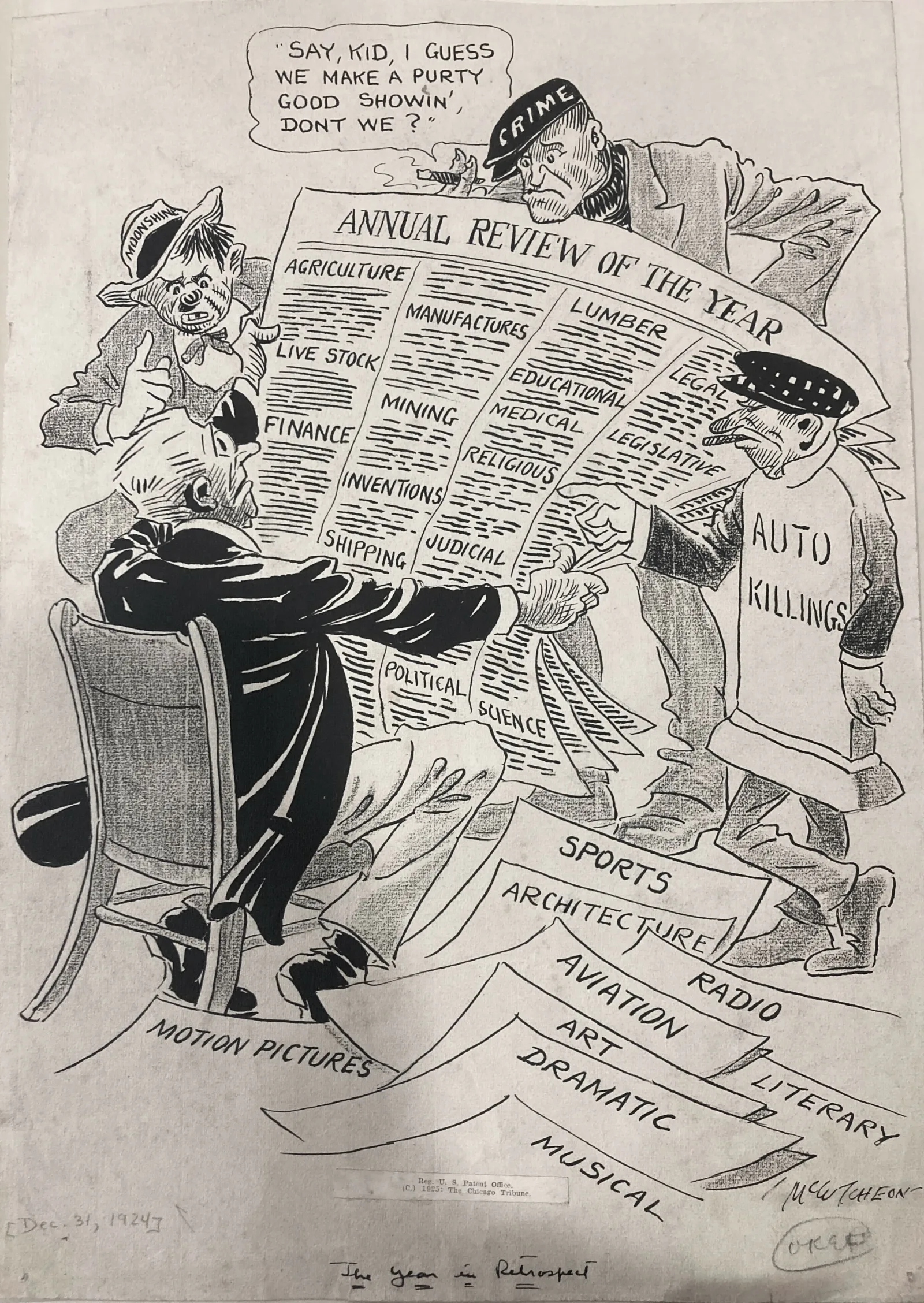Class Description
Journey back one hundred years to learn what Chicagoans cared about and what events continue to shape the city to this day. The class goes month by month, following stories as they developed in real time, reflecting on what was significant in the moment but is now forgotten, what is remembered, and what led to the city we inhabit today.
The year 1924 changed Chicago in profound ways. Landmarks today such as the Tribune Tower, Jeweler’s Building, Elks Memorial, Buckingham Fountain, and Shedd Aquarium, among others, rose on a landscape where roadways were widened (and in the case of Wacker Drive, made two levels), beaches extended, and transit lines consolidated. Contrasting with the growth of the built environment was an unprecedented growth in crime and social disorder: 86 people were murdered in the first 91 days of the year; rampant violation of prohibition laws brought to prominence formerly minor criminals, such as Al Capone; and killings that inspired popular culture, from the Leopold and Loeb case to the crimes that inspired the musical Chicago, occurred. National and international events, such as the passage of a restrictive immigration bill; the first Winter and the Summer Olympics in Paris; and the rise of authoritarianism in Europe and of the Ku Klux Klan across the United States, had a local impact. We are all living in the city that was created that year.
The class is divided into three online sessions, a combination of lecture and discussion—each of which explores four months from the year and a particular theme—and a 75-minute walking tour at the end. Each session and the tour will use a document from the Newberry’s collection to spark discussion, and materials from several collections will be used to supplement the class throughout.
Paul Durica is Director of Exhibitions at the Chicago History Museum and previously at the Newberry Library. He leads a series of Chicago history walks, talks, and reenactments that have been featured in local and national media collectively called Pocket Guide to Hell. He holds a PhD in English from the University of Chicago.
All virtual classes are recorded and made available on a password-protected basis to participants registered in the class. These recordings are available for up to two weeks after the class ends.
Materials List
Required
- Instructor-Distributed Materials
First Reading
- For week one, please review the selected John T. McCutcheon editorial cartoons from the Chicago Tribune and come prepared to discuss.
Cost and Registration
This class is full, but you can still register for the waitlist on Learning Stream.
4 Sessions, $135 ($121 for Newberry members, seniors, and students). Learn about becoming a member.
We now offer our classes at three different price options: Regular ($135), Community Supported ($125), and Sponsor ($145). Following the models of other institutions, we want to ensure that our classes are accessible to a wider audience while continuing to support our instructors. You may choose the price that best fits your situation when registering through Learning Stream.
To register multiple people for this class, please go through the course calendar in Learning Stream, our registration platform. When you select the course and register, you’ll be prompted to add another registrant.
Support the Newberry
Your generosity is vital in keeping the library’s programs, exhibitions, and reading rooms free and accessible to everyone.
Make a Gift